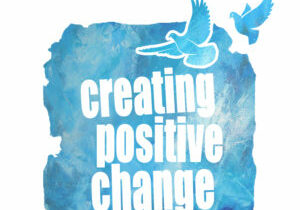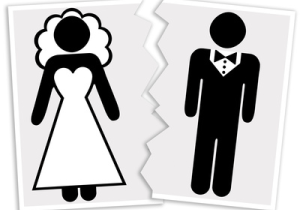
Reduce Anxiety! Become Fearless!
3 Tips to Reduce Anxiety
I have to admit, I was quite frightened yesterday at the thought of taking my 3 month old to make his first appearance in church. My anxiety was multifaceted: so many things could go wrong! For starters, he could cry the whole 25-minute car ride there. Once there, he could decide it was just too much stimulation and demand (by crying of course) that I take him back home to the safety and serenity of his jungle-themed nursery. Or worse, while dozens of people line up to meet him after church, he might decide at that exact moment that he is REALLY hungry, which generally means wailing at the top of his lungs until the milk hits his lips.
But for a variety of reasons, I was determined to go on this particular outing, so early this morning, off we went! And guess what?
No wailing! Only about 3 minutes of crying when we first got in the car, and then he was peacefully asleep. And at church, he was in a pretty good mood. Several women came up to me after church and said: “Wow, he’s such a good baby.” (At some points I was sure aliens had abducted my son and replaced him with a mellow baby!)
You see, most of the time, our fears – what we imagine might go wrong – are much, much scarier than the reality of what actually happens.
What are you too afraid to do?
What Causes Anxiety?
It might surprise you to learn that our thoughts generally cause our anxiety. Have you ever noticed that sometimes when your computer seems to be running slow, or even freezing up, its because one of those pop-up internet windows has snuck its way onto your screen behind everything else? Our thoughts do something very similar. They run in the background of our life, in the back of our mind. And the run constantly! Usually saying negative things like: “People might laugh at me”, “I’ll look stupid”, “I wouldn’t be any good at that; I’ve never done it before”, “It probably won’t work”, and so on.
With the thoughts running in the back of our mind, we essentially talk ourselves into being anxious. We give ourselves anxiety.
How To Get Rid of Anxiety
So, if we have the power to cause ourselves to have anxiety, do we have the power to get rid of it? Absolutely! That is the basis of some of the most effective forms of psychotherapy such as Cognitive Behavioral Therapy (CBT) and Rational Emotive Behavioral Therapy (REBT).
While working with a good therapist trained in CBT or REBT will likely give the best results, here are a few quick tips to get you started:
1) Identify the Anxious Thought. When you notice yourself feeling anxious, ask yourself this question, and jot down the answers that come to mind: “What was I thinking immediately before I noticed my anxiety? What was I quietly saying to myself?”
Write that down. It may be something like “I don’t think I will do well on that test”, or “When I speak, I’ll fumble my words and look like a fool”, or “I’m probably not qualified enough to get that job”, or even “He doesn’t like me anymore, and he’s planning to break up with me”.
2) Challenge the Thought. Then ask yourself: “Is this thought true? Can I know 100% for sure that this is true?”
Probably not! You cannot know 100% for sure that you will not do well on the test. You cannot know 100% for sure that you will fumble your words, or that people will think badly of you if you do. You cannot know for sure that you won’t get the job. And you cannot know for sure that he is planning to break up with you!
You cannot see into the future. You are not that powerful! But you are powerful enough to give yourself anxiety if you believe that you can predict the future!
3) Come up with Alternative Possibilities. Since you cannot know for sure that your thought (the one giving you anxiety) is true, think of at least 2 other alternate explanations or possibilities. For example, A) It’s possible I will do well on the test (either because you studied enough, or the test will just happen to be pretty easy, or B) the test will be canceled because the teacher is sick today, or even C) you will not do well on the test, but will be able to make it up with an extra-credit assignment.
Yes, this approach takes a little effort, but it works! Over time you begin to see clearly that most of the thoughts you think (the things you tell yourself about what might go wrong) are simply not true. 99% of the time, when you go ahead and do the thing you were so afraid of, you realize it really wasn’t all that bad after all!
RELATED POSTS:
Get In Touch
(954) 559-2936
Please contact me via my contact form at vcita:
Contact Form for Plantation Counseling and Wellness / Plantation Psychiatry
We Are Hiring!
We are always looking for great clinicians and administrative staff. If you are interested in working with us, email your resume and a brief note to [email protected]
Tour Our Office
Our counseling, therapy and psychiatry office in Greater Fort Lauderdale, Florida is private and cozy.
Take a peek inside!


Dr. Chantal Gagnon
Dr. Chantal Marie Gagnon, Ph.D., LMHC is a licensed psychotherapist, relationship counselor, and life coach in Plantation, Florida. Dr. Gagnon provides individual therapy, family counseling services, and couples therapy in her Plantation, FL office. Coaching services are available nationwide.
Did this Article Help?
Here are a few more you might want to Read




















